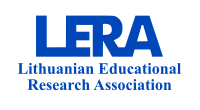Congratulations to the new doctor Maria Jose De Urraxa on the successful defend5ng of her PhD thesis on “Personalisation in Education for Learner Empowerment” (Education Science (S 007)) and acquiring degree of Social Sciences in the field of Education. The scientific supervisor – prof. dr. Lina Kaminskienė (Vytautas Magnus University), scientific advisor – prof. dr. Erno Lehtinen (Turku University).
The dissertation is available at the Vytautas Magnus University and the Lithuanian National M. Mažvydas Library.
The dissertation is available at: 11 Studentų St. Academia, Kaunas d5strict.
A brief annotation of the dissertation is presented below.
Personalisation in education refers to a shift from a teacher-centred to a student-centred approach (Camps-Bansell, 2018), emphasising the active role of students in the learning process (Chocarro et al., 2007; Deed et al., 2014; Coll, 2015). Research on this topic clearly shows that the personalisation process in education requires empowering student agency (Coll, 2015), but the basis for this is unclear. Therefore, this study aimed to investigate the essential components of personalisation in education through teachers’ and learners’ experiences of personalisation and the associated shared expressions of learners’ personal agency.
The methodological approach used in this research work is a methodology based on both quantitative and qualitative research. A sequential explanatory design was applied, involving a two-phase exploratory work. The philosophical model used is critical realism (Bhaskar et al., 1998; Archer, 1998). The quantitative research involved a teacher survey designed by the author and the qualitative research involved observations and interviews in three schools. The results suggest that teachers are trying to personalise learning, although contextual constraints such as large class sizes and the demands of standardised examinations are challenges that make it difficult to fully personalise learning. The results of the qualitative study show that learners’ internal barriers influence communication and conformity preference inhibits their personal agency in the learning process, leading to depersonalisation dynamics.
The study concludes that the personalisation of education as a process requires collaboration between teachers and learners, and the active participation of learners is essential. The practice of personalisation in education has a common theoretical framework, based on anthropological foundations, which allows the application of personalisation as an educational principle. This provides a basis for future research and pedagogical innovation.
facebooklinkedintwitter


